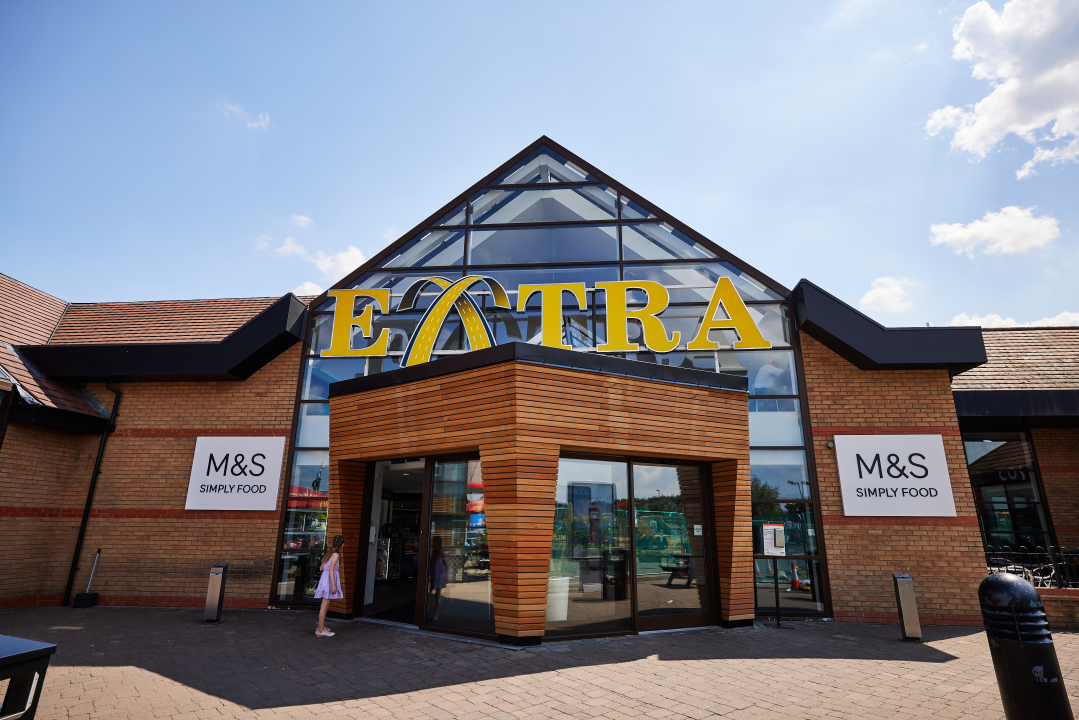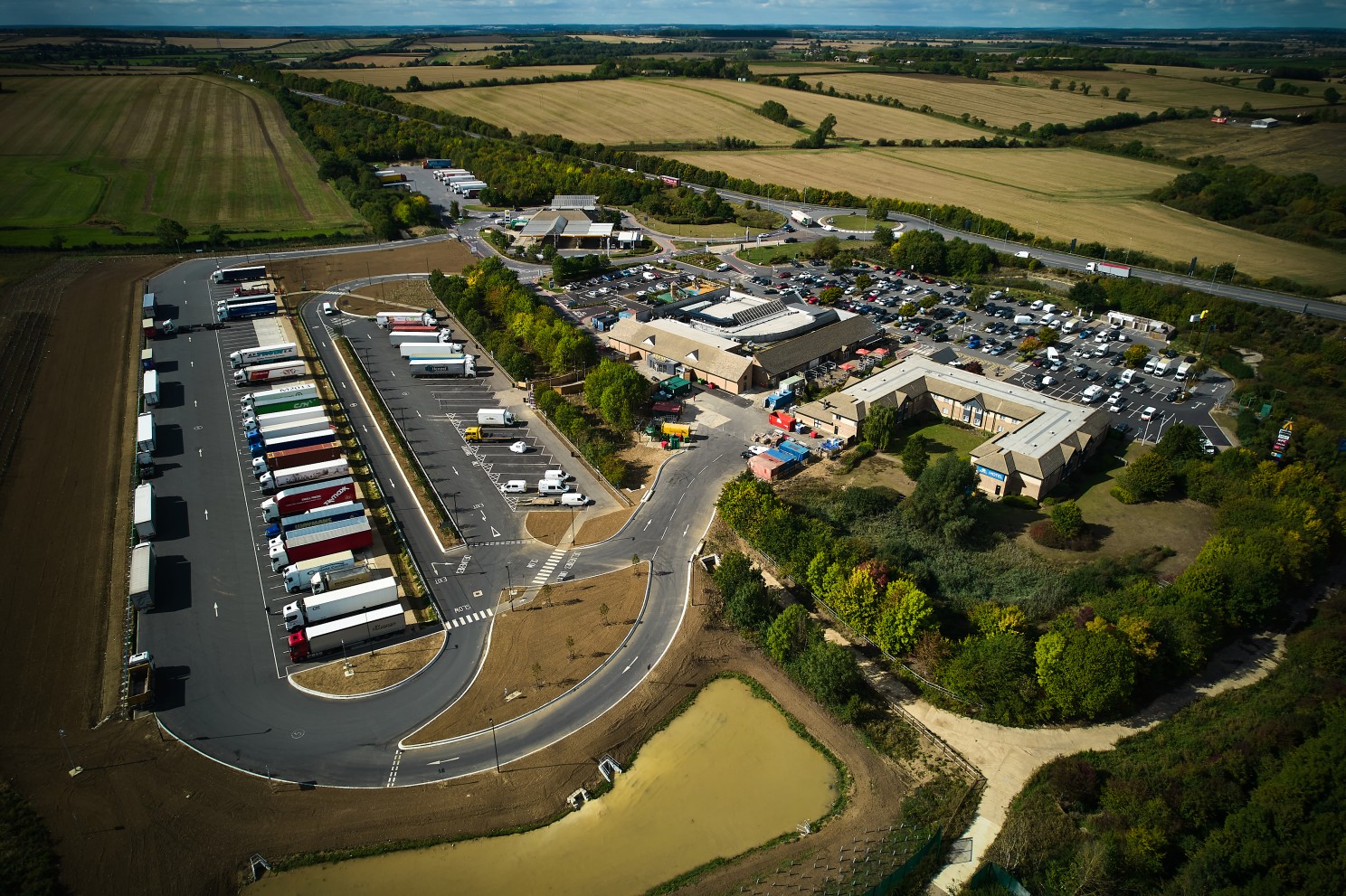
Josh Cousens
Стратегическое партнерство: SNAP и подход Extra к парковке грузовиков
Создано: 01.08.2024
•
Обновлено: 13.08.2024
Директор компании Росс Менденхолл рассказывает, как SNAP помог компании Extra Motorway Service Area (MSA) увеличить рост доходов по всей своей сети на 8 % в год с момента начала сотрудничества в 2011 году.
"Ключевым преимуществом для нас является то, что клиентская база SNAP постоянно расширяется, позволяя нам охватить еще 30 000 потенциальных клиентов в год", - говорит Росс Менденхолл, который использует SNAP для максимального расширения бизнеса Extra по парковке грузовиков.
Росс объясняет свою роль в Extra: "Я контролирую нашу сеть из восьми МСА по всей Англии, обеспечивая наилучшие условия работы и процессы, позволяющие нам добиваться максимального удовлетворения потребностей клиентов, и работаю в сотрудничестве с нашим генеральным директором, чтобы мы могли сосредоточиться на наших амбициях по развитию.
"Я также тесно сотрудничаю с нашими поставщиками и брендами-арендаторами, чтобы обеспечить наилучшие впечатления для всех, кто посещает наши MSA".
Дополнительные зоны обслуживания автомагистралей
Открыв свой первый объект в Кембридже в 2000 году, Extra сегодня является одним из крупнейших операторов по обслуживанию автострад в Великобритании. В последнем опросе пользователей автодорожных услуг Transport Focus компания Extra была признана оператором номер один по уровню удовлетворенности клиентов в Великобритании.
Росс говорит: "В основе нашего бизнеса лежит стремление "пройти лишнюю милю", чтобы доставить удовольствие всем нашим посетителям.
"В частности, мы гордимся тем, что предлагаем широкий ассортимент некоторых любимых британских брендов продуктов питания и напитков, живописные открытые пространства с площадками для выгула собак и детскими игровыми площадками, а также безопасные, чистые и высококачественные объекты для всех желающих".
В 2023 году в зонах обслуживания внеуличных автомагистралей насчитывалось 260 066 парковочных сессий SNAP.

Введите SNAP
Начав сотрудничать со SNAP в 2011 году, Росс объясняет, как партнерство помогло Extra расширить услуги по парковке грузовиков. "SNAP помогает нам донести наши ключевые услуги до водителей грузовых автомобилей и автопарков, обеспечивая наглядность наших возможностей по парковке, заправке и мойке.
"Мы стремимся повысить уровень удовлетворенности водителей грузовых автомобилей, которые останавливаются у нас, и участие в сети SNAP позволяет нам сделать именно это. Благодаря приложению мы можем развивать наши партнерские отношения и органические продажи, предоставляя клиентам эффективный инструмент для получения дополнительной информации о наших объектах, в том числе о том, как мы можем сделать их пребывание приятным, спокойным и безопасным".
Каким был процесс установки?
Мы хотели выяснить, не было ли каких-либо осложнений на ранних этапах отношений.
Росс говорит: "Все было очень просто. Сотрудники SNAP всегда были готовы ответить на любые вопросы, и даже после завершения настройки они с удовольствием выслушали наши отзывы о том, как можно еще улучшить систему, чтобы она лучше отвечала нашим потребностям".
Рост выручки
Мы спросили Росса, помог ли SNAP компании Extra увеличить доходы:
"Сотрудничество с SNAP помогло нам стабильно увеличивать рост выручки, которая по сравнению с прошлым годом выросла на 8%, а рост транзакций увеличился на 2%.
"Наши услуги в Кембридже и Питерборо показали наибольшее улучшение по сравнению с прошлым годом - 11% и 12%. Кроме того, наши сервисы в Питерборо, Лидсе и Кембридже сейчас заполнены на 100%+".

SNAP Access & Security
После нескольких лет успешного сотрудничества компания Extra обратилась к нам в 2018 году с просьбой помочь усовершенствовать их объекты безопасности.
"За прошедшие годы мы укрепили наше партнерство с SNAP, инвестировав в технологии видеонаблюдения и ANPR для обеспечения максимальной безопасности.
"Установка технологий безопасности на всех восьми наших объектах помогла нам защитить наши доходы, гарантируя, что каждый автомобиль платит за правильное время пребывания.
"Эффект от сотрудничества с SNAP Access & Security был практически мгновенным - с момента начала работы доход от парковки увеличился примерно на 20 %.
"Кроме того, поскольку безопасность является одним из приоритетов для водителей грузовиков во время длительных остановок, мы рады помочь сделать их пребывание более приятным, заверив их, что у нас есть комплексные меры, чтобы свести к минимуму риск кражи.
"Доступ к панелям бизнес-анализа SNAP также означает, что мы можем отслеживать данные в режиме реального времени, что позволяет нам обеспечить наилучшее качество обслуживания пользователей", - говорит Росс.
Самый лучший кусочек
В завершение интервью мы хотели спросить Росса, что, по его мнению, самое лучшее в работе с SNAP:
"Ключевой успех для нас - это влияние на эффективность работы персонала. Внедрение системы ANPR в сочетании с платежными терминалами позволило водителям получить возможность самообслуживания, а это значит, что сотрудники могут сосредоточиться на других ключевых задачах, таких как уборка, техническое обслуживание и работа с клиентами.
"Гибкость, которую предлагают платежные терминалы, также является большим преимуществом: водители могут использовать платежные терминалы на 15 языках, что улучшает качество обслуживания клиентов и снижает проблемы языкового барьера".
Чтобы узнать больше о партнерах Extra service в сети SNAP, посетите Карта SNAP . Если вы предлагаете услуги по парковке грузовых автомобилей и хотите присоединиться к сети SNAP, узнайте больше здесь.


